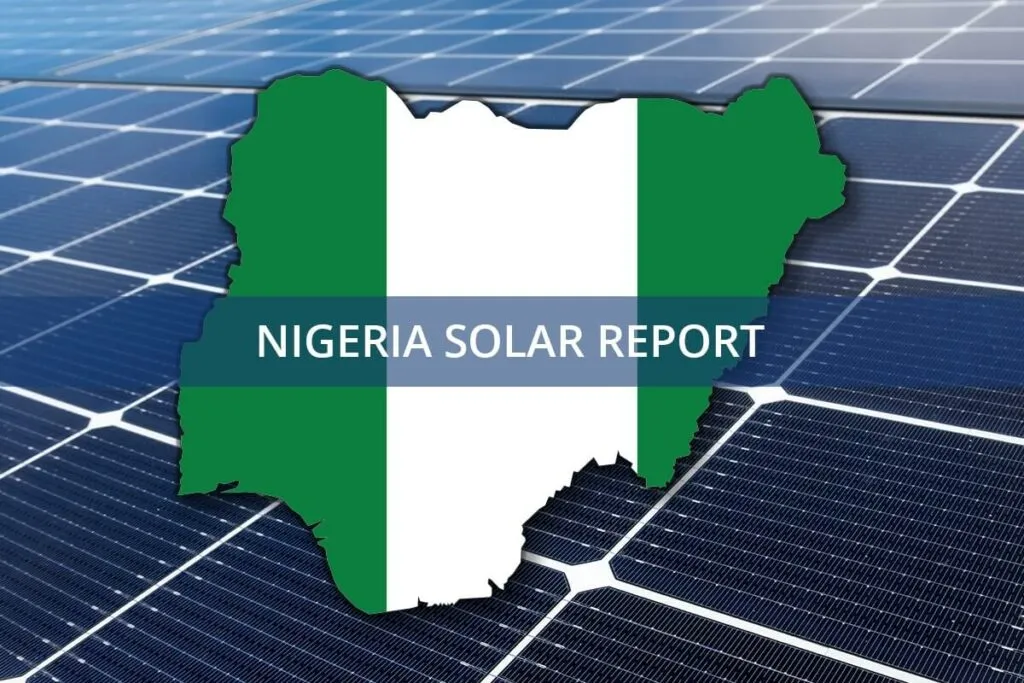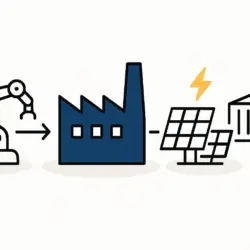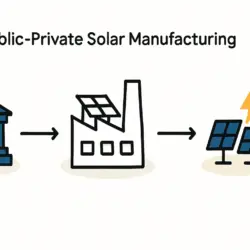Nigeria imported solar panels worth N242.68 billion in the first half of 2025, signaling a strong and urgent shift towards renewable energy due to persistent instability in the national electricity supply. The National Bureau of Statistics (NBS) reported that solar panel imports rose by a significant 17.29 percent compared to the same period in 2024, highlighting a powerful trend among citizens and businesses seeking energy independence.
Nigeria’s Solar Panel Imports Rise by 17.29% in 2025: Analyzing Nigeria solar panel imports
Solar Panel Imports: Boosting Energy Security for Nigeria solar panel imports
In the first half of 2024, Nigeria imported solar panels valued at N206.82 billion. This figure surged to N242.68 billion in the same period of 2025, a clear indicator of escalating demand. The country’s total merchandise imports for the first half of 2025 stood at N10.99 trillion, with solar panel imports accounting for a notable 2.20 percent of this total. This growth is particularly striking given the prohibitive costs and high exchange rates that make importation a challenge for many Nigerians.
The data underscores the scale of Nigeria’s solar market, which was valued at over $600 million in 2024 and is projected to grow annually by 15-20%. This expansion is not just a local phenomenon but part of a broader story of Africa solar growth as the continent increasingly turns to renewables.
China remains the largest exporter of solar panels to Nigeria, with shipments worth N173.15 billion in the first half of 2025, representing 71.38 percent of Nigeria’s total solar imports. The United Arab Emirates (UAE) and India followed with imports worth N28.69 billion and N16.82 billion, respectively. This substantial increase in imports reflects a grassroots effort by Nigerians to enhance their energy security and reduce their reliance on an unpredictable national grid.
Investments in Renewable Energy for Nigeria solar panel imports
While direct consumer and business spending on solar panels has soared, the NBS data on capital importation presents a more complex picture. Total capital importation into the broader electricity sector decreased by 60.2 percent year-on-year (YoY), from $55.67 million in the first half of 2024 to $22.17 million in the same period in 2025.
On a quarter-on-quarter (QoQ) basis, capital importation into the electricity sector fell by 41.8 percent from $13.06 million in the first quarter of 2024 to $7.6 million in the first quarter of 2025. However, it rebounded with a 60.5 percent QoQ rise to $12.2 million in the second quarter of 2025.
Although the NBS data does not specify the exact portion allocated to renewable energy projects, the massive increase in solar panel imports suggests that a significant amount of private capital is flowing into distributed solar solutions like rooftop and mini-grid systems, even if large-scale project financing has fluctuated. This consumer-driven investment is a powerful force shaping Nigeria’s energy landscape.
Solar Energy: A Solution to Nigeria’s Power Challenges and Nigeria solar panel imports
Nigeria’s power sector has long been plagued by challenges, with frequent blackouts and load shedding impacting businesses and households. The nation has an installed electricity generation capacity of 13,000 megawatts (MW), but often only around 4,000 MW is available for distribution. This forces many to depend on expensive and environmentally harmful diesel generators.
Solar energy offers a clean, reliable, and increasingly viable solution. It can be deployed in both urban and rural areas, providing stable power to homes, farms, and off-grid communities. Recognizing this potential, the Nigerian government has implemented policies to encourage its adoption. The Nigeria Electrification Project (NEP), funded by the World Bank and the African Development Bank (AfDB), is a key initiative aiming to provide solar power to over 2.5 million people.
Furthermore, there is a growing strategic conversation around reducing import dependency. The government is exploring policies, including a potential ban on solar panel imports, to stimulate domestic production. Establishing a robust local industry would involve mastering the solar panel manufacturing process and securing a steady supply of raw materials. This shift could lower costs, create thousands of jobs, and position Nigeria as a regional leader. Government incentives like the Pioneer Status and advantages offered in Nigerian Free Trade Zones are designed to attract investment into this critical sector.
This trend is mirrored in the region, with neighboring countries like Niger also launching ambitious solar energy initiatives to tackle power deficits.
The growth in solar panel imports is a positive sign for Nigeria’s energy future. It demonstrates a clear public demand for reliable and sustainable power. As the government continues to support renewable energy and foster local manufacturing, solar power is set to play an increasingly vital role in Nigeria’s energy mix. This will not only improve energy security but also contribute significantly to the country’s climate goals.
If you are interested in understanding the technical and financial aspects of creating a solar panel factory, you can explore our free e-course on the topic.



